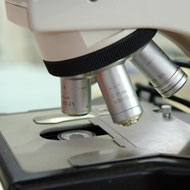Conference highlights importance of wildlife forensics

The Wildlife Forensics Development programme will provide a platform for international research and training.
Representatives from more than 30 countries gathered in Edinburgh yesterday (7 June) to discuss the importance of forensic science in detecting and tackling wildlife crime.
Held outside the USA for the first time, the Society for Wildlife Forensic Science Symposium focused on how scientists can strengthen wildlife law enforcement.
During the conference, environment secretary Roseanna Cunningham confirmed a new partnership between the Scottish Government and the University of Edinburgh to set up a wildlife forensics development programme.
Creating formal ties between the Scottish Government’s Wildlife DNA Forensics Unit and the Royal (Dick) School of Veterinary Studies, the programme will provide a platform for international research and training.
Ms Cunningham commented: “As hosts to the UK’s only dedicated wildlife DNA forensics lab, Scotland is leading the way when it comes to using forensic science to shape wildlife law enforcement. Forensics can provide evidence that an offence has been committed and plays an important role investigating trade routes and poaching.
“The new wildlife forensics development programme builds on Edinburgh’s strong reputation for biosciences, taking a progressive approach that will strengthen the links between enforcement, policy and forensics.”
Dr Rob Ogden, president of the Society for Wildlife Forensic Science, explained that the aim of the symposium is to help integrate modern forensic science with the global wildlife enforcement community.
“The fight against wildlife crime in all its forms requires coordinated efforts from multiple partners to reduce incentives and demand, and to investigate and prosecute criminal activity,” he said.
“Forensic science has revolutionised criminal investigations and is now being employed to help protect some of the world's most threatened species from persecution and illegal trade."



 The BSAVA has opened submissions for the BSAVA Clinical Research Abstracts 2026.
The BSAVA has opened submissions for the BSAVA Clinical Research Abstracts 2026.